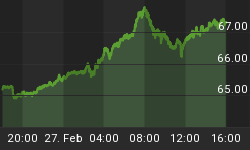The U.S. August net trade deficit has now been reported at U.S.$44.2 billion, with both imports and exports falling, but exports falling by a greater degree. For America, monthly net trade deficits are 'business as usual', and have been for over three decades. I continue to believe that where a country experiences continuing net trade deficits that leads to:
-
continuing weakness in comparative economic strength with its trading partners; and,
-
all other things equal, being a negative factor in revenue/expenditure balances at all government levels - and hence a negative contributor to government cumulative debt at all government levels.
For me, rightly or wrongly, a country's net trade surpluses or deficits are an important 'economic marker', notwithstanding it seems clear that many economists disagree with this.
The following two charts show U.S. net monthly trade deficits to July 31, 2012, and the build-up of U.S. cumulative net trade deficits to December 31, 2011 (note the chart heading incorrectly says 1979 - 2010 when it should say 1979 - 2011). The U.S. cumulative net trade deficit stood at U.S.$8.54 trillion at December 31, 2011, and at August 31, 2012 had increased by a further U.S.$378 billion (and is virtually certain to have exceeded U.S.$400 billion for the nine months ended September 30.
Note that almost 80% of the U.S. net cumulative trade deficit has been experienced in the post-1999 period, which period coincides with significant U.S. manufacturing job losses.


If you believe the world and U.S. economies over time are appropriately reflected in the world's financial markets and market prices, I suggest you take careful note of these U.S. trade deficit statistics and continuing build-up of the U.S. cumulative net trade deficit.
Topical Reference: U.S. trade gap widens as exports fall again, from MarketWatch, Greg Robb, October 11, 2012 - reading time 2 minutes.















